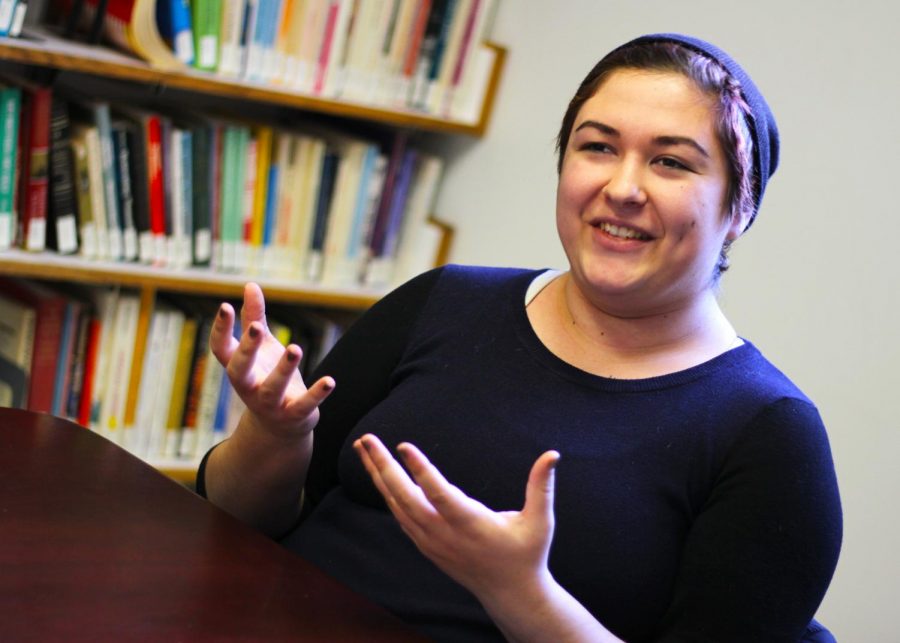MeToo campaign created solidarity for survivors
Movement gives sexual assault survivors chance to break silence, shifts attention toward perpetrators
KIERA CLUBB | The Daily Evergreen
Kayley DeLong, a senior comparative ethnic studies major and social media intern at the Women’s Resource Center, describes the importance of the #MeToo movement in emboldening sexual assault survivors to speak out and come together.
November 16, 2017
Almost every important woman in my life has either been sexually assaulted or raped. The national statistic is one in six women, according to the Rape, Abuse & Incest National Network, but it sure feels like a lot more. Many of my friends have shared their story with me, but from the #MeToo campaign, I could see that there were plenty that had not.
The original MeToo campaign was started 10 years ago by activist Tarana Burke for survivors to connect with each other. The slogan was recently utilized by Alyssa Milano to showcase just how many women had been sexually assaulted. She asked people to retweet MeToo if they had ever been sexually harassed or raped. Soon after, the hashtag was retweeted almost half a million times, according to The Atlantic.
The movement inspired women and men alike to share their stories, and, just as importantly, name names. Over the last month, 31 high profile individuals have been accused of sexual assault, according to Newsweek magazine. Some have denied the allegations, but others like Louis C.K. have come forward and said the allegations were true.
The MeToo campaign did two important things: It showed the widespread prevalence of sexual assault, but it also allowed a network of survivors and allies to show solidarity with each other. It’s this solidarity that has allowed so many individuals, from average citizens to movie stars, to call out those who’ve assaulted them.
For the last several hundred years, there has been a culture of silence when it comes to sexual assault. Although the problem is obviously not fixed, that culture is starting to crumble.
Many survivors did not choose to share the hashtag. Kayley DeLong, social media and engagement intern at the Women’s Resource Center, said that the duty to share their stories does not fall on the survivor. Their experiences are valid either way.
It is not, and never should be, any survivor’s job to stop the culture of sexual harassment, just like it is not the job of any oppressed people to educate their oppressors on how they are being oppressed. When someone does speak out about their trauma, though, it is the job of those of us who haven’t experienced it to listen.
“One of the most important next steps is realizing your self-awareness and where you are and your relationships with people. How your privileges or intersections of oppression impact your perspective and how you can navigate those in a creative and effective way,” Delong said.
The job of allies is to combat the culture that normalizes sexual assault without taking control of the movement. We cannot speak to what it feels like to survive such a trauma, but we can lend our voices to help amplify the message. We cannot decide where the movement goes next, but we can follow behind in support.
Delong said that one of the most important quotes to her as a student and a professional comes from Angela Davis: “Radical simply means grasping things at the root.” It’s important to tackle the underlying issues, such as toxic masculinity and racialized issues, Delong said.
Be radical in how you approach sexual violence. Recognize that the way we speak and interact on a daily basis could have a negative impact toward normalizing sexual assault, whether it’s looking the other way when a drunk person is being taken advantage of or laughing at a rape joke.
There are countless people in my life who’ve been affected by sexual assault. There is no doubt that this has influenced how strongly I feel about the topic, but it shouldn’t take a loved one being assaulted to care. The MeToo campaign has been critical to influencing real change, but each of us has the power to make it unnecessary.











